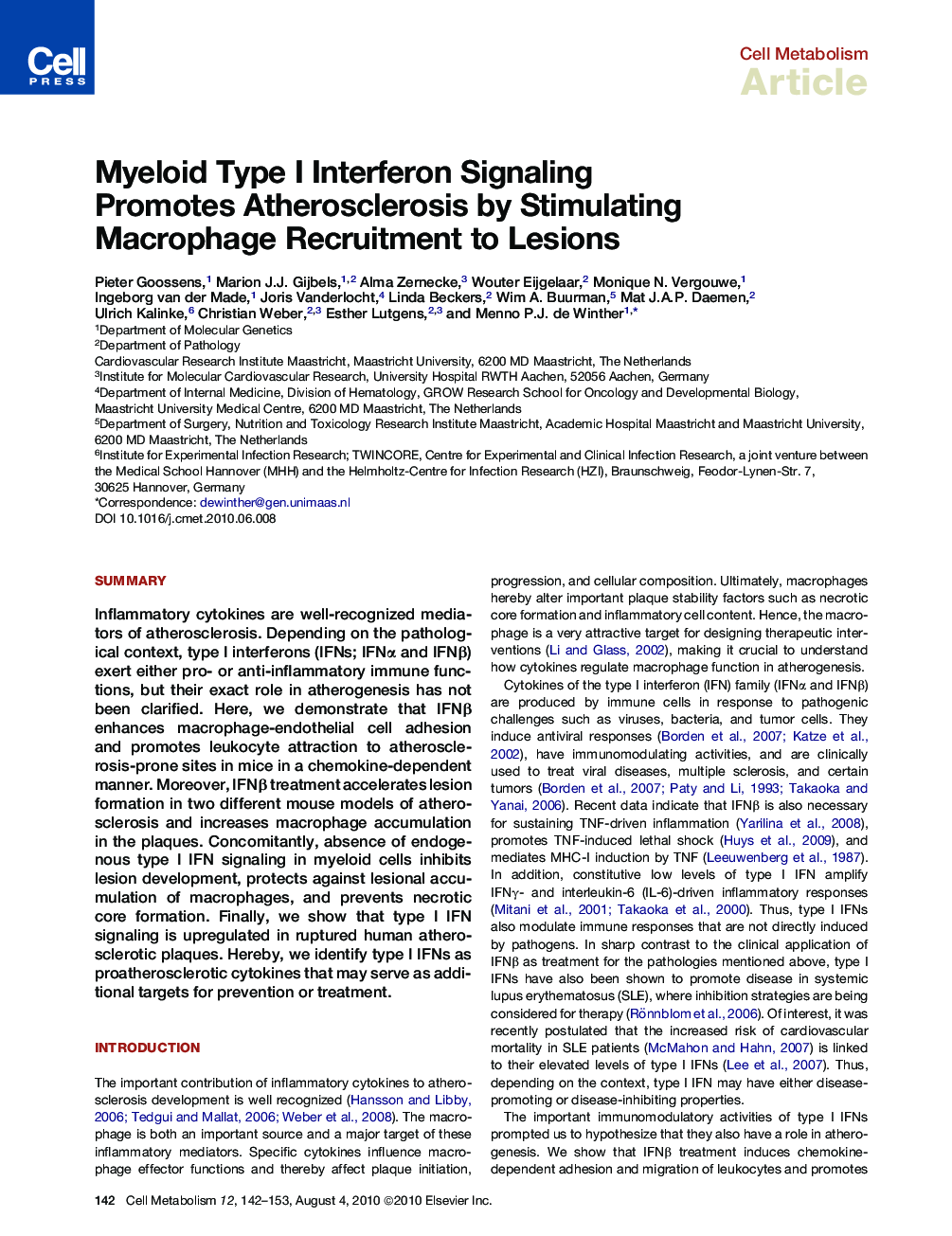| Article ID | Journal | Published Year | Pages | File Type |
|---|---|---|---|---|
| 2793171 | Cell Metabolism | 2010 | 12 Pages |
SummaryInflammatory cytokines are well-recognized mediators of atherosclerosis. Depending on the pathological context, type I interferons (IFNs; IFNα and IFNβ) exert either pro- or anti-inflammatory immune functions, but their exact role in atherogenesis has not been clarified. Here, we demonstrate that IFNβ enhances macrophage-endothelial cell adhesion and promotes leukocyte attraction to atherosclerosis-prone sites in mice in a chemokine-dependent manner. Moreover, IFNβ treatment accelerates lesion formation in two different mouse models of atherosclerosis and increases macrophage accumulation in the plaques. Concomitantly, absence of endogenous type I IFN signaling in myeloid cells inhibits lesion development, protects against lesional accumulation of macrophages, and prevents necrotic core formation. Finally, we show that type I IFN signaling is upregulated in ruptured human atherosclerotic plaques. Hereby, we identify type I IFNs as proatherosclerotic cytokines that may serve as additional targets for prevention or treatment.
► Type I IFNs upregulate chemotactic factors and enhance macrophage adhesion ► IFNβ promotes leukocyte arrest at atherosclerosis-prone sites in mice ► Treatment of mice with IFNβ promotes atherogenesis ► Inhibition of myeloid type I IFN signaling decreases atherosclerosis
